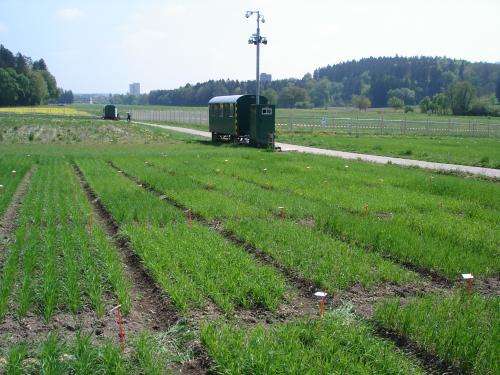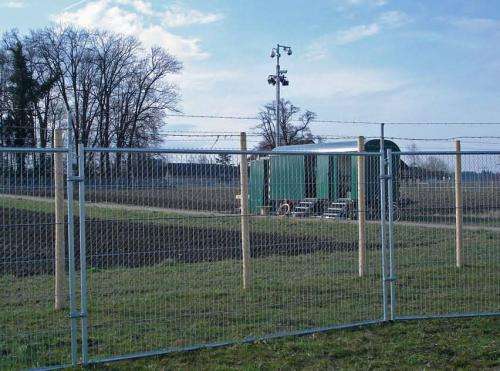Fighting GM crop vandalism with a government-protected research site

Genetically modified (GM) crops have been a source of great controversy—particularly in Europe—but acts of vandalism and associated security costs have made scientific evidence about the health and ecological impacts of those crops hard to come by. A Swiss government-protected field site dedicated for use in GM crop studies could serve as an example to other European countries interested in pursuing crop biotechnology, according to an article published in Trends in Biotechnology, a Cell Press publication, on February 28.
The protected field site will now enable research groups to conduct experiments without having to install and pay for security measures. The research station is expected to operate with an annual budget of €600,000.
"This could be a model for other European countries that wish to evaluate the advantages and disadvantages of GM crops in an objective and scientific manner with less risk of vandalism," said Jörg Romeis of Zurich's Agroscope Reckenholz-Tänikon Research Station.
As of 2010, opponents of genetic modification had destroyed more than 100 field trials in Europe. At the Reckenholz site, a group of more than 30 masked activists threatened researchers and destroyed about 30 percent of the experimental plants in a 2008 field trial.
The new protected field site will provide GM crop researchers with all the technical security measures needed to guard against such attacks, including perimeter fencing, round-the-clock guarding and surveillance of the experimental field, and an alarm system.
Romeis and his colleagues say that vandalism and its associated costs appear to be a major factor in the steady decline of European GM research, a situation that they call unacceptable.

In many parts of the world, GM crops are gaining popularity. In 2011, as much as 10 percent of the world's arable crop area was planted with GM crops. However, the adoption of GM plants has been very low in Europe, with only two GM crops approved for cultivation: Bt maize and a starch-modified potato. No GM crop is approved for commercial release in Switzerland, where there is a voter-approved moratorium in place through 2017. However, scientific research, including field experiments with GM plants, is permitted.
Romeis says that the establishment of such protected sites could eventually reverse the decline in GM field trials and strengthen plant biotechnology research in Europe.
More information: Trends in Biotechnology, Romeis et al. "Plant biotechnology: research behind fences" dx.doi.org/10.1016/j.tibtech.2013.01.020
Provided by Cell Press

















